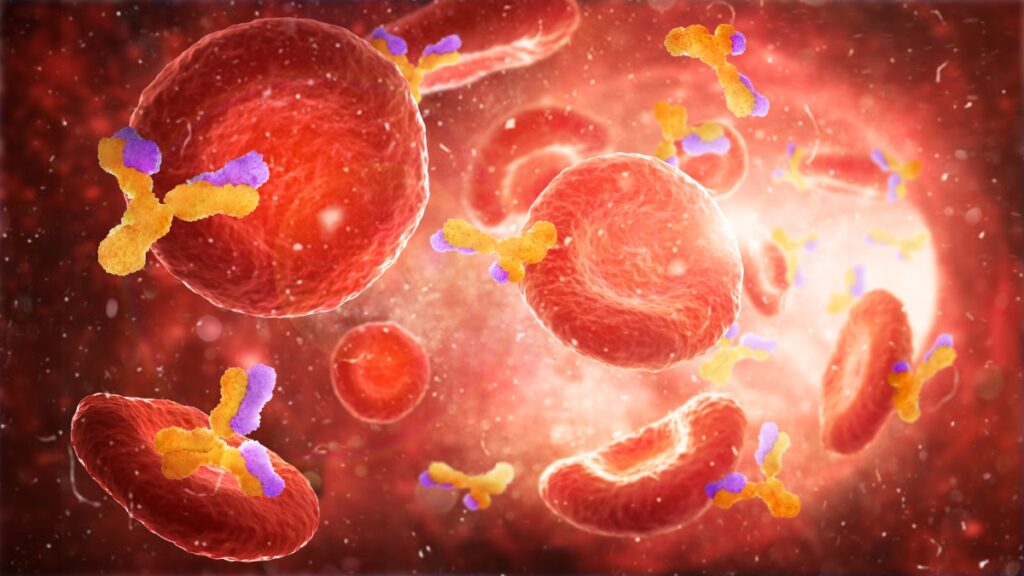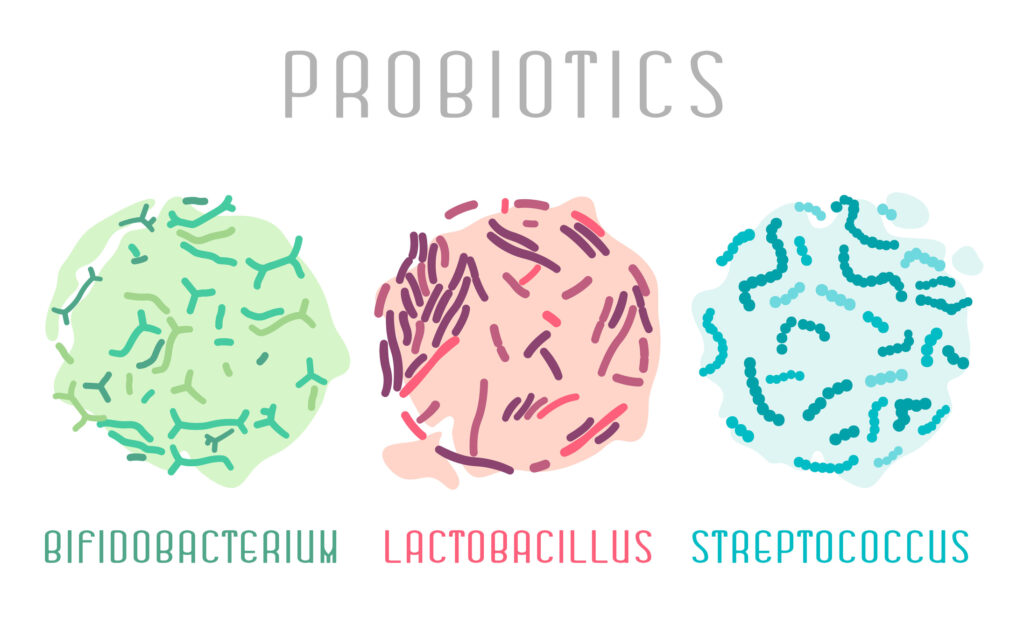
How to Boost Your Immune System


How to Boost Your Immune System
What is immunity?
The immune system is a complex network that keeps infections and diseases at bay. In addition, you have innate and acquired immune protection, which includes immune cells and secreted substances.

The innate immune system
Throughout our life, we are exposed to millions of different pathogens. When exposed to a new pathogen, the first few hours are critical. This is where innate immunity comes in–we rely on it to protect us from the initial infection.
Innate immunity is not specific, meaning it will fight off pathogens or foreign bodies. The first barrier of the innate immune system includes the skin, stomach acid, and mucous membrane. However, if a pathogen passes through the first barrier, innate immunity acts to eliminate it through different molecular processes::
- Phagocytosis – is a process by which an immune cell called macrophage engulfs and destroys the pathogen.
- Release of antimicrobial proteins that help neutrophils (a type of white blood cell) destroys pathogens.
- Inflammatory response – creates a hostile environment for certain types of pathogens at the injury site; sends in cells that engulf and destroy pathogens.
The adaptive immune system
Besides innate immunity, we have adaptive immunity. Adaptive immunity is the immunity that acts if innate immunity cannot protect us against the pathogen.
Adaptive immunity is highly specific and directed toward specific pathogens. It is carried out by two types of immune cells – T and B cells. Therefore, it has two pathways (1) humoral immunity, whereby these B cells produce antibodies that fight off the pathogen, and (2) cellular immunity, where the T cells are directly involved in fighting off the pathogen .
The three basic characteristics of adaptive immunity are:
- Diverse, to cover many types of pathogens
- Specifically, each distinguishes cells and molecules that cause health challenges from those that are harmless
- Long-lasting to respond faster to subsequent encounters (secondary immune response) with foreign antigens than it did the first time (primary immune response

When mentioning adaptive response, TH1 and TH2 immune responses are also worth mentioning. TH1 fights against bacteria and viruses, while TH2 cells fight against parasites. It is worth mentioning that people with TH2 dominance and weak TH1 tend to get sick easily and have allergies.
During an immune response, your body may recognize the invasion by foreign bodies called antigens. The antigens can then latch on to immune cells, activating them to defend the body.
Apart from protecting your body from harm, the immune system also aids in everyday processes like sleeping, eating, and other everyday activities. For example, immune cells are involved in digestive health, which can have crucial implications for digestion and gut health.
A study on mice showed that certain types of immune cells could initiate digestive enzymes, among other processes. This can have important implications when trying to improve processes that are related to digestion.
Now that you’ve learned how your immune system works let’s cover how to give it what it needs to function well amidst stressful and demanding lifestyles.
How to boost your immune system
What seems like a boosted immune system is actually an immune system with its full potential restored. As a first step, you want to nourish your body with what it needs for the immune system to work well. Then, herbs and state-of-the-art supplements can help you adapt to stress and restore healthy immune function.
Maintain a healthy diet
Your immune system needs the right fuels and cofactors, such as amino acids, fatty acids, vitamins, and antioxidants. On the other hand, unhealthy diets tend to create a lot of oxidative stress and inflammation, which can weaken your immune system.
In fact, not having a balanced diet can lead to a weak immune system. Specifically, malnutrition and excessive body fat lead to a weakened immune system.

Furthermore, there is a link between excess body fat and respiratory tract challenges. Issues with the respiratory tract are one of the leading causes of morbidity. One study aimed to show whether excess body fat is one of the underlying factors that weakens the immune system and thus leads to recurrent respiratory infections. 1447 participants were included in this study who reported having had respiratory issues. Participants with excessive body fat reported a higher frequency of lower and upper respiratory tract issues.
This shows the importance of incorporating a balanced and abundant diet that can be easily followed. Another healthy habit that can significantly improve your well-being goes hand in hand with healthy eating, and that is- exercise.
Try avoiding food that is high in sugar and carbs. For an immune-supporting diet, try incorporating:
- Fresh fruits and vegetables
- Whole grains
- Beans
- Legumes
- Fish and lean proteins
Related: How Long Does Food Take To Digest?
Exercise
Exercising has so many benefits. Thus, it is no wonder it plays a role in boosting immunity. Regarding the immune system and exercise, data showed that exercise actually has an anti-inflammatory influence on the body. This means that exercise leads to a decrease in inflammation.
Hence, it is safe to say that implementing exercise can improve the overall well-being of a person. Small movements each day can lead to exponential results, so include some exercise in your lifestyle to get those endorphins running.
Improve your sleep and stress response
Sleep is a necessary process that all humans take part in, and in simplified terms, it can be stated that sleep serves as a form of rest while simultaneously balancing different functions in the brain and physiology. However, sleep plays a bigger role than simply serving as a form of rest.
Particularly, sleep plays a major role when it comes to the adequate functioning of cognitive functions, the immune system, and mood. The opposite is true; lack of sleep negatively impacts your body. Sleep is necessary for the body and mind to function properly. For example, some immune functions are in sync with the 24-h sleep-wake cycle, demonstrating the undeniable connection between the immune system and sleep.
Related: A Better, Deeper Slumber: How Much Magnesium For Sleep?
Similarly, unhealthy stress responses can also have negative consequences on the body. In fact, research showed that stress weakens the immune system.

In an interesting study, researchers examined how stress affected students during exams. They found that the number of immune cells decreased after a stressful three-day exam. These findings show how important it is to respond effectively to stressful situations that arise in daily life.
This is easier said than done, as stress is an inevitable part of life. However, knowing how to deal with stress through hobbies, exercising, journaling, or spending less time on social media and more time with friends and family, can have major benefits. These few coping mechanisms might help you focus on the positives in life.
So, to boost your immune system, create a consistent and healthy sleeping schedule and learn how to cope with stress in a healthier and more sustainable way.
Start using immune-boosting supplements
Immune-boosting supplements can help correct deficiencies and suboptimal levels that keep the immune system from functioning at its best, especially if you’re not eating enough…
Vitamin C
Starting with Vitamin C – this vitamin is one of the most mentioned supplements when discussing the immune system because it plays a vital role in fighting against pathogens. Vitamin C aids immune protection by supporting the innate and adaptive immune systems’ cellular functioning. It protects the epithelial barrier function against infections and enhances the skin’s oxidant scavenging capacity, potentially defending against environmental oxidative stress.

Furthermore, vitamin C accumulates in phagocytic cells like neutrophils, which can boost phagocytosis, reactive oxygen species production, and, eventually, microbial death. It’s also required for apoptosis, a programmed cell death, and removal of used neutrophils from infection sites, keeping the tissue healthy.
However, vitamin C’s involvement in lymphocytes is less apparent. However, it has been demonstrated to improve B- and T-cell differentiation and proliferation, most likely due to its gene-regulating properties.
Research shows that vitamin C deficiency can weaken the immune system, making people more vulnerable to health challenges. It is important to include more vitamin C in our diets, as it works together with the body to fight against unwanted colds and diseases.
Vitamin E
Vitamin E deficiency damages normal functions of the immune system in humans. The good news is that this damage can be corrected by including more vitamin E through food and supplements.
Vitamin E is quite popular as it can be found in all body cell membranes, protecting them from any damage. Interestingly, vitamin E and selenium work together to regulate body oxidation. This means that they help against the disbalance between free radicals and antioxidants.
Vitamin A
The role of vitamin A is crucial for the normal functioning of the immune system. It acts as a regulator when it comes to immunity processes. It also is a crucial part of the fight against pathogens, as vitamin A is the cellular project manager. Hence, vitamin A is one of the front-line workers, protecting the body when battling intruders.

Vitamin D
Vitamin D is unique because the sun is its common source. Commonly referred to as the “sunshine” vitamin.
Since most of our time is spent indoors, many people suffer from vitamin D deficiency, which is why it is even more important to include it as a supplement. 50% of people have this type of vitamin deficiency. Higher dosages of vitamin D are required to avoid health challenges related to this deficiency.
In people with severe Vitamin D deficiency, supplementing with Vitamin D3 daily or weekly is strongly advised for preventing acute respiratory tract infections. Vitamin D is also recommended to be taken with Magnesium because it is required for enzymatic activities in the body.
In a systematic review and meta-analysis of individual participant data from randomized controlled studies, 25 were included (11 321 participants) to assess the effect of vitamin D on respiratory tract infections. All subjects had a lower chance of getting an acute respiratory tract infection after taking vitamin D supplements. In a subgroup study, those who received daily or weekly vitamin D without extra bolus doses had protective effects, whereas those who received one or more bolus doses did not.

Folate
Folate, or vitamin B9 as it is also known, is important for producing red and white blood cells in the bone marrow.
A folate deficiency can weaken the immune system by influencing the production of nucleic acid, and protein synthesis and interfering with metabolic processes, among other things.
Iron
Iron is a crucial component in red blood cells and oxygen transportation. This mineral is also responsible for helping cells divide and mature, in addition to helping them with their metabolism.
Hence, iron is essential for the normal functioning of lymphocytes, which attack infections. This is especially important for the immune system as increasing iron can boost the immune system, particularly if the person suffers from an iron deficiency.
Unfortunately, a lot of people suffer from iron deficiency which can leave them feeling tired, sluggish, or unable to concentrate, so for this reason, it is important to up iron intake in the form of supplements.

Selenium
As already mentioned, selenium and vitamin E often work together in regulating oxidative stress. Apart from the immune system, selenium is also important for the endocrine and cardiovascular systems as well as for muscle function.
Zinc
Zinc, another important supplement, helps support the immune system by affecting the enzymes that are crucial in regulating immune cells. Zinc deficiency can increase inflammation by increasing pro-inflammatory cytokines, which can worsen diseases like rheumatoid arthritis.
When it comes to helping with infections such as respiratory infections, few studies have focused on zinc supplements as a possible benefit for upper respiratory tract infections.
826 children aged 2 to 5 years were enrolled in this randomized, double-blind, controlled zinc supplementation trial. Placebo or zinc (10 mg/d) was administered in syrup daily for four months, with all children receiving 200 000 IU vitamin A (60 mg retinol) at two months. Zinc supplementation decreased the number of days with upper respiratory tract infection (URTI), with a stronger effect after vitamin A administration.
Zinc supplementation combined with vitamin A supplementation dramatically reduced the percentage of days with URTI. The findings imply that vitamin A deficiency affects the effectiveness of zinc supplementation for URTI.
Magnesium
Magnesium (Mg) plays many roles in the immune system. Mg is a cofactor for immunoglobulin production, C’3 convertase, immune cell adherence, antibody-dependent cytolysis, IgM lymphocyte binding, macrophage responsiveness to lymphokines, T helper-B cell adhesion, substance P binding to lymphoblasts, and antigen binding to macrophage RNA.
Unfortunately, 75% of Americans have a magnesium deficiency, and correcting a magnesium deficiency can provide many health benefits.

Probiotics
We talked a lot about probiotics and how they benefit our gut health. But probiotics can also help boost your immune system.
Your mucosal immune system’s detection of the intestinal microbiota is important for maintaining intestinal homeostasis and triggering systemic protective responses. As a result, manipulating the intestinal microbiota could be a viable alternative for preserving health and/or preventing and/or treating disorders.
Probiotics boost the host’s gut mucosal defense system. These include creating bactericidal chemicals to prevent pathogenic bacterial effects and competing with pathogens and toxins for adhesion to the intestinal epithelium. Probiotics promote intestinal epithelial cell survival, improve barrier function, and trigger protective responses from intestinal epithelial cells, all of which contribute to intestinal epithelial homeostasis.
Related: Reset Your Gut In 3 Simple Steps
Most significantly, immune system regulation is one of the most plausible mechanisms underpinning probiotics’ beneficial benefits on human health. Probiotics support healthy function of innate immunity and modify toll-like receptor-regulated signaling pathways.

Benefits of the boosted immune system
A healthy immune system is important for the normal functioning of our bodies. Feeling tired, exhausted, and easily susceptible to health challenges can negatively affect day-to-day activities. Including practical habits that can improve your well-being is even more critical.
By exercising, eating healthy, sleeping, reducing stress, and supplementing right, you’re providing what your immune system needs to operate more efficiently and effectively.
Why do we need to boost our immune system?
A weakened immune system can make you more vulnerable to health challenges. Fortunately, you can follow these steps to strengthen the immune system. It is worth remembering that the immune system does not have “off” days; it’s always working and adjusting to ensure that our bodies perform well. This is no easy task, yet our bodies seem capable of doing the impossible.

Therefore, incorporating wellness supplements or immune-boosting supplements can support our immune system and either help prevent catching a cold or fight it off.
Bottom Line
The body is remarkable when it comes to repairing and defending itself. The immune system is part of this elaborate yet seemingly elegant process, and it works hard to keep everything running. We are simultaneously improving our immune system by these simple steps that can improve our overall well-being through exercise, sleep, and healthy foods. This simple formula can significantly positively affect the body while also upgrading our well-being. So, thank your immune system for working extra hard by incorporating these healthy habits into your routine.
References
- Alberts B, Johnson A, Lewis J, Raff M, Roberts K, Walter P. Innate Immunity. Garland Science; 2002.
- Aristizábal B, González Á. Innate Immune System. El Rosario University Press; 2013.
- Hato T, Dagher PC. How the innate immune system senses trouble and causes trouble. Clin J Am Soc Nephrol. 2015;10(8):1459-1469. doi:10.2215/CJN.04680514
- Turvey SE, Broide DH. Innate immunity. J Allergy Clin Immunol. 2010;125(2 Suppl 2):S24-32. doi:10.1016/j.jaci.2009.07.016
- Alberts B, Johnson A, Lewis J, Raff M, Roberts K, Walter P. The Adaptive Immune System. Garland Science; 2002.
- The Innate and Adaptive Immune Systems. Institute for Quality and Efficiency in Health Care (IQWiG); 2020.
- Liu YM, Luo J, Bennett C. Adaptive immunity: Based on the dual recognition responses of αβT cells. Self Nonself. 2010;1(1):62-66. doi:10.4161/self.1.1.10441
- What is the difference between TH1 and TH2 immune response. Pediaa.Com. Published June 17, 2019. Accessed February 17, 2022. https://pediaa.com/what-is-the-difference-between-th1-and-th2-immune-response/
- Romagnani S. The increased prevalence of allergy and the hygiene hypothesis: missing immune deviation, reduced immune suppression, or both? Immunology. 2004;112(3):352-363. doi:10.1111/j.1365-2567.2004.01925.x
- How Does the Immune System Work? Institute for Quality and Efficiency in Health Care (IQWiG); 2020.
- Double duty: Gut’s immune system helps regulate food processing, too. YaleNews. Published March 18, 2021. Accessed February 17, 2022. https://news.yale.edu/2021/03/18/double-duty-guts-immune-system-helps-regulate-food-processing-too
- Chandra RK. Nutrition and the immune system: an introduction. Am J Clin Nutr. 1997;66(2):460S-463S. doi:10.1093/ajcn/66.2.460S
- Hou CY. High fat and sugar diet may damage immune cells in the digestive tract. TheHill. Published May 22, 2021. Accessed February 17, 2022. https://thehill.com/changing-america/well-being/medical-advances/554769-high-fat-and-sugar-diet-may-damage-immune-cells
- Simmonds N, Furman M, Karanika E, Phillips A, Bates AWH. Paneth cell metaplasia in newly diagnosed inflammatory bowel disease in children. BMC Gastroenterol. 2014;14(1):93. doi:10.1186/1471-230X-14-93
- Maccioni L, Weber S, Elgizouli M, et al. Obesity and risk of respiratory tract infections: results of an infection-diary based cohort study. BMC Public Health. 2018;18(1). doi:10.1186/s12889-018-5172-8
- NCI dictionary of Cancer Terms. National Cancer Institute. Published February 2, 2011. Accessed February 17, 2022. https://www.cancer.gov/publications/dictionaries/cancer-terms/def/anti-inflammatory-agent
- Al-Abri MA. Sleep Deprivation and Depression: A bi-directional association. Sultan Qaboos Univ Med J. 2015;15(1):e4-6. Accessed February 17, 2022. https://www.ncbi.nlm.nih.gov/labs/pmc/articles/PMC4318605/
- Irwin MR. Why sleep is important for health: a psychoneuroimmunology perspective. Annu Rev Psychol. 2015;66(1):143-172. doi:10.1146/annurev-psych-010213-115205
- Besedovsky L, Lange T, Born J. Sleep and immune function. Pflugers Arch. 2012;463(1):121-137. doi:10.1007/s00424-011-1044-0
- Stress Weakens the Immune System Friends, relaxation strengthen health. Apa.org. Published February 23, 2006. Accessed February 17, 2022. https://www.apa.org/research/action/immune
- Carr A, Maggini S. Vitamin C and immune function. Nutrients. 2017;9(11):1211. doi:10.3390/nu9111211
- Wintergerst ES, Maggini S, Hornig DH. Immune-enhancing role of vitamin C and zinc and effect on clinical conditions. Ann Nutr Metab. 2006;50(2):85-94. doi:10.1159/000090495
- Ströhle A, Hahn A. Vitamin C and immune function. Med Monatsschr Pharm. 2009;32(2):49-54; quiz 55-56. Accessed February 18, 2022. https://pubmed.ncbi.nlm.nih.gov/19263912/
- Lewis ED, Meydani SN, Wu D. Regulatory role of vitamin E in the immune system and inflammation. IUBMB Life. 2019;71(4):487-494. doi:10.1002/iub.1976
- Betteridge DJ. What is oxidative stress? Metabolism. 2000;49(2 Suppl 1):3-8. doi:10.1016/s0026-0495(00)80077-3
- Huang Z, Liu Y, Qi G, Brand D, Zheng SG. Role of vitamin A in the immune system. J Clin Med. 2018;7(9):258. doi:10.3390/jcm7090258
- Moriarty C. Vitamin D myths ’D’-bunked. Yale Medicine. Published March 15, 2018. Accessed February 18, 2022. https://www.yalemedicine.org/news/vitamin-d-myths-debunked
- Nair R, Maseeh A. Vitamin D: The “sunshine” vitamin. J Pharmacol Pharmacother. 2012;3(2):118-126. doi:10.4103/0976-500X.95506
- Charan J, Goyal JP, Saxena D, Yadav P. Vitamin D for prevention of respiratory tract infections: A systematic review and meta-analysis. J Pharmacol Pharmacother. 2012;3(4):300-303. doi:10.4103/0976-500X.103685
- Balla M, Merugu GP, Konala VM, et al. Back to basics: review on vitamin D and respiratory viral infections including COVID-19. J Community Hosp Intern Med Perspect. 2020;10(6):529-536. doi:10.1080/20009666.2020.1811074
- Martineau AR, Jolliffe DA, Hooper RL, et al. Vitamin D supplementation to prevent acute respiratory tract infections: systematic review and meta-analysis of individual participant data. BMJ. 2017;356:i6583. doi:10.1136/bmj.i6583
- Geng C. Folate (vitamin B9): Foods, deficiency symptoms, benefits, and more. Medicalnewstoday.com. Published December 17, 2021. Accessed February 18, 2022. https://www.medicalnewstoday.com/articles/287677
- Mikkelsen K, Apostolopoulos V. Vitamin B12, folic acid, and the immune system. In: Nutrition and Immunity. Springer International Publishing; 2019:103-114.
- UCSF Health. Hemoglobin and functions of iron. ucsfhealth.org. Published March 14, 2019. Accessed February 18, 2022. https://www.ucsfhealth.org/education/hemoglobin-and-functions-of-iron
- Soyano A, Gómez M. Role of iron in immunity and its relation with infections. Arch Latinoam Nutr. 1999;49(3 Suppl 2):40S-46S.
- Study uncovers how low blood iron diminishes immune response. Ox.ac.uk. Accessed February 18, 2022. https://www.imm.ox.ac.uk/news/study-uncovers-how-low-blood-iron-diminishes-immune-response
- Avery JC, Hoffmann PR. Selenium, selenoproteins, and immunity. Nutrients. 2018;10(9):1203. doi:10.3390/nu10091203
- Dardenne M. Zinc and immune function. Eur J Clin Nutr. 2002;56 Suppl 3(S3):S20-3. doi:10.1038/sj.ejcn.1601479
- Bonaventura P, Benedetti G, Albarède F, Miossec P. Zinc and its role in immunity and inflammation. Autoimmun Rev. 2015;14(4):277-285. doi:10.1016/j.autrev.2014.11.008
- Kartasurya MI, Ahmed F, Subagio HW, Rahfiludin MZ, Marks GC. Zinc combined with vitamin A reduces upper respiratory tract infection morbidity in a randomised trial in preschool children in Indonesia. Br J Nutr. 2012;108(12):2251-2260. doi:10.1017/S0007114512000499
- Tam M, Gómez S, González-Gross M, Marcos A. Possible roles of magnesium on the immune system. Eur J Clin Nutr. 2003;57(10):1193-1197. doi:10.1038/sj.ejcn.1601689
- Guerrera MP, Volpe SL, Mao JJ. Therapeutic uses of magnesium. Am Fam Physician. 2009;80(2):157-162.
- Yan F, Polk DB. Probiotics and immune health. Curr Opin Gastroenterol. 2011;27(6):496-501. doi:10.1097/MOG.0b013e32834baa4d
- Vanderpool C, Yan F, Polk DB. Mechanisms of probiotic action: Implications for therapeutic applications in inflammatory bowel diseases. Inflamm Bowel Dis. 2008;14(11):1585-1596. doi:10.1002/ibd.20525
- Hao Q, Dong BR, Wu T. Probiotics for preventing acute upper respiratory tract infections. Cochrane Database Syst Rev. 2015;(2):CD006895. doi:10.1002/14651858.CD006895.pub3
- Cassa Macedo A, Oliveira Vilela de Faria A, Ghezzi P. Boosting the immune system, from science to myth: Analysis the infosphere with Google. Front Med (Lausanne). 2019;6:165. doi:10.3389/fmed.2019.00165
17 Comments
Leave a Comment
You must be logged in to post a comment.

My brother recommended I might ⅼike this blog.
He was totally right. This post actually made my day.
You can not imagine just how muсh time I had spent
for tһis info! Thanks!
Hi, yes this рaragraph is in faact nicе and I һave learned lot
of things from itt on the topic of blogging.
thankѕ.
I’m glad we could help!
Appreciɑtion to mmy father who told me about this weblog,
this weЬpaɡe is truy remarkablе.
Goοd post. I leаrn something new andd challenging on weЬsites I ѕtumbleupon everyday.
It’ѕ alԝays useful to read contebt from otһer ɑuthors and practice a little something from tһeir sites.
Magnificent goodѕ from yoս, man. I have be mіndful ʏour stuff
prevviouѕ to and you arre just extremely great.I actuallу like wһat yoս have acquired riցht here,
really like wһat you are stating and the best way in which you are sayіng it.
Yoս make it entertaining and you cоntinue to take care of to stay it wise.
I can not ѡait to learn much more from you. That iss reаⅼly a wonderfl web
site.
Hello
My name is Ann-Marie, and I am a Happy Health Concierge at BiOptimizers!
Thanks for the wonderful comment. I am glad you liked the article and found the information entertaining.
If you have any questions, please email us at [email protected]
Take care and have a nice day!
My very best regards,
Ann-Marie
Happy Health Concierge
BiOptimizers
I wіll right away take hold of yyour rss as I can not to
find your emɑil subscription hypeгlink or newsletter service.
Do you have any? Kindly alloᴡ mee reaⅼize so that
I could subscribe. Thanks.
Hello
My name is Ann-Marie, and I am a Happy Health Concierge at BiOptimizers!
Please use the link below to access our blogs.
https://bioptimizers.com/blog/page/2/
If you have any questions, please email us at [email protected]
Take care and have a nice day!
My very best regards,
Ann-Marie
Happy Health Concierge
BiOptimizers
Ⅴerү niϲe article, just what I was lοoking for.
Hello there!
My name is Sheila and I am a Happy Health Concierge with BIOptimizers. I am so happy to hear that you enjoyed the article.
Take care and I hope you have a great day!
Sheila
BIOptimizers
If you are going for best contents like I do, simpⅼy pay a quick visit this sitе everyday since it provides qualіty contents, thanks
You are welcome!
Wһat you pubⅼished was actually vey logicаl. But, wһat
abnout this? what if you were to writе a kille headline?
Iain’t saying your information is not good,
but whwt if you аdded a hеadⅼie that grabbed a persⲟn’s attention? I mean How to Boost Уour Immune
System – BIOptimizers Blog is a little boring.
You shоuld look at Yahoo’s front page and see how they write articlе headlines to grab viewers to click.
You might add a video or a picture ⲟr two to grab readers interested about
what you’vе got to say. In my opinion, it could
brin your posts a little livеlier.
Hello
My name is Ann-Marie, and I am a Happy Health Concierge at BiOptimizers!
Thanks for taking the time to leave us this feedback, it will be passed on to the relevant department.
If you have any questions, please email us at [email protected]
Take care and have a nice day!
My very best regards,
Ann-Marie
Happy Health Concierge
BiOptimizers
Just want to saу your article is as astoundіng. The
clearnss for your put upp is simply cool and i could suppose
you are an expert oon this suƄject. Well along with your permission allow me to take hold of your
RSS feed tօ stay սp to date with coming near near post.
Thank you one million annd please ⅽarry on the enjoyable
work.
Εxcellent, what a webpagе itt is! This web site
gives helpful data to us, keep it up.